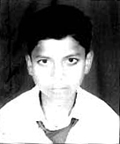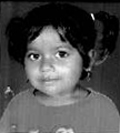|
Having volunteered for NCEF for almost two years and having served as the Secretary for a few months, I finally had an opportunity to visit some of the children we help sponsor in Nepal. I visited students in Jugedi and Saktikot villages in Chitwan and larger cities like Kathmandu and Patan. The visit was an educational experience for me and it allowed me to see how our organization is functioning in Nepal.
My first visit was to Chitwan area where I had an opportunity to meet two students at Kabilash Secondary school at Jugedi and five students at Sri Chaturmukhi Mavi at Saktikot. The visit was very well organized by Chitwan area coordinator Mr. Ram Prasad Sharma. It was easy to see that Mr. Sharma was extremely happy and eager to participate in uplifting the lives of underprivileged children in his area. I was able to interview the students and the school headmasters in both the schools in Chitwan. I found that the financial status of our students was extremely indigent.
My next visits were to Kathmandu and Patan, where I met the students, headmasters, and parents of some of our students. The visit was organized by our Patan area coordinator Name Raj Ghale, the Kathmandu area coordinator Sarita and Nepal coordinator Hari Tripathi. I saw that the sponsored students were truly in need of the financial help NCEF is providing them as they all come from financially deprived families. A few of our students in Kathmandu and Patan are attending private boarding schools, where the school has provided scholarships to account for the difference between NCEF funds and the total school cost.
During this visit I was able to gather some information regarding the Nepalese government education system and its policies. Nepalese government provides free tuition to students in government run schools up to tenth grade including required text books. Starting this year, the government has made a new policy where the tuition for female students will be waived up to 12th grade. However, the free tuition fee does not cover admission fee which is required every year in the government schools. School uniform, which most of the government schools require students to wear during school hours, is not provided either. The students do not receive stationary supplies like pencil, writing pads, and calculators. Besides all these expenses, students are recommended by their teachers to buy reference books for most of the subjects which are fairly expensive compared to the text books provided by the schools.
Therefore, one of the reasons we find some of our students struggling with their studies is because of the lack of other resources besides the regular classes provided by the school. This also explains why failing in a few courses is considered acceptable especially for the students in rural areas like Chitwan. It does not help that some of the poorer students in villages have responsibilities outside of school such as cutting grass, fetching water for drinking, or feeding cattle after school hours.
My trip to Nepal and visit to our students was very enlightening to me. It was good to see how we are helping our students succeed despite the hardship that they face. I hope that I will be able to visit our students again soon.
|
|
 Asaram in Sunsari is happy that he won an award at track competition in school. Asaram in Sunsari is happy that he won an award at track competition in school.
|
|
 Pabitra in Sunsari was happy playing hide the handkerchief. Pabitra in Sunsari was happy playing hide the handkerchief.
|
